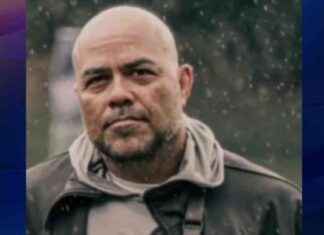Nadhim Zahawi carried in his genes (if that is possible) that one day he would be Minister of Economy of this country. His grandfather had been a director of the Central Bank and the bills he issued bore his signature. Although they were not British pounds but dinars, and they did not show the faces of Queen Elizabeth II or Winston Churchill, but of the leaders of the Ottoman Empire and the British protectorate.
But that destiny would not have been fulfilled if someone had not tipped the family off in the late 1970s that Zahawi’s father – a Kurdish businessman – had fallen from grace and was about to be sent to the dungeon. (or worse), and if he hadn’t had the money and contacts to get tickets on the first flight to London. Or if the regime’s intelligence and security services had reacted more diligently, or if the dictator hadn’t turned a blind eye.
“I still have nightmares remembering how, with the plane already on the runway about to take off, the engines stopped, they put up a ladder and two policemen got on and went straight to where my father was sitting. But they went on and took the man who was right behind amid screams and protests.
The truth is that Nadhim Zahawi, now 55, grew up in Thatcher’s England rather than Saddam’s Iraq. And instead of being recruited years later to fight in the war against Iran (a fate that his age would hardly have prevented, even as the grandson of the head of the Central Bank), he went to school in Sussex, initially to the public and, when the family finances allowed it, to a private one. Which explains his accent and his mannerisms. And that when he arrived he did not speak a word of English.
When he was about to enter university, his father’s company went bankrupt and the Zahawis were left penniless. The only thing they managed to save from creditors was an old brown Vauxhall car, which young Nadhim wanted to make a profit on by working as a taxi driver, so that he would at least have something to eat. Her mother flatly refused, pawned the jewels that she had brought from Iraq (of considerable value) and with this she not only paid for her son’s studies, but her husband was able to start other businesses, which they were better.
The current British Chancellor of the Exchequer would never be poor again. After graduating from University College London with a degree in Chemistry, he set up a business selling Teletubbies merchandise and got Jeffrey Archer (then a Conservative politician and now a novelist) to invest money in it. From that friendship his political career was born.
Zahawi was elected as a councilor for the London suburb of Wandsworth (Margaret Thatcher’s favorite constituency), and when Archer ran for mayor of London, he brought the bright young Baghdad-born into his team. The campaign was cut short by a scandal in which the politician was involved (and which eventually cost him a couple of years in prison for perjury), but the current chancellor of the Exchequer retrained himself, founding the polling firm YouGov (which still exists), sold his shares for one and a half million euros (he is one of the seven richest members of Parliament), was chief strategist for Gulf Petroleum (with a salary of half a million euros a year) and won the seat by Strattford-Upon-Avon, the city of William Shakespeare.
Despite his considerable fortune, he could not avoid the temptation to claim and charge Parliament as expenses the five thousand euros that it cost him to put electricity in the stables of his farm (he is fond of horse riding and has several horses). He survived the scandal, and Theresa May appointed him Secretary of State at the Ministry of Education. Boris Johnson transferred him to the Business portfolio, and later to the Health portfolio to take charge of the distribution of the vaccines, which was a complete success.
“He is a born organizer,” says his mentor, Lord Archer. You tell him you need six taxis, three planes, two helicopters and a bus, and he gets them for you.” Zahawi has been at the center of the Tory crisis. On Tuesday of last week he was education minister, on Wednesday he had been appointed finance minister (following Rishi Sunak’s resignation), and on Thursday he was telling Johnson that he had to resign. His candidacy for party leader has not taken off, but that kid who was born in Baghdad and narrowly escaped from Saddam has not yet said the last word about him.








